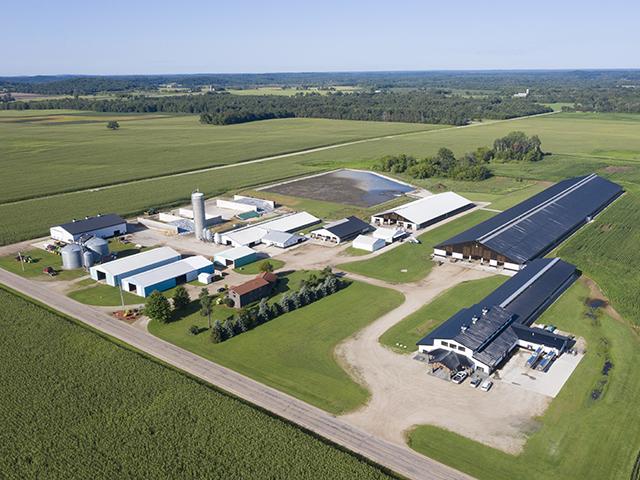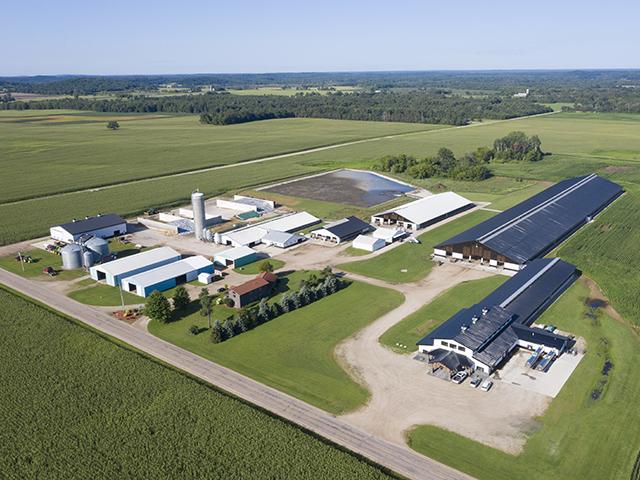Editors' Notebook
Thoughts on a Land Divided
You'd have to be living under a rock to not know about the divide that has been growing in this country.
At DTN and Progressive Farmer, we're business-focused. We chiefly work on the stories and subjects that help make farmers profitable or attempt to keep them from losing money. That doesn't mean we don't pay attention to other, more cultural, matters. We just don't write about them as much. So, while we haven't ignored the growing political and cultural divide that's going on today, we haven't really focused on it.
Being journalists, we certainly can't ignore how "the media" and "news" have been as much a part of this issue as they have been covering it.
So, I was pleased to see DTN Editor Emeritus Urban Lehner put his unique perspective and intellect toward this rural/suburban issue in a recent An Urban's Rural View blog: https://www.dtnpf.com/….
If you haven't read the piece, I highly recommend it. Just as highly, I suggest the follow-up blog that was posted later, in which three farmers share their thoughts on the farm-nonfarm division. That piece can be found here: https://www.dtnpf.com/….
Lehner's ability to walk thoughtfully, intellectually, through thorny issues always leaves me humbled. But it was his timing on this subject that really hit home.
The initial blog came into our editing que just as we were deep into final plans for the 2023 National Ag Day celebrations that took place March 21.
On one hand, preparing for Ag Day and the whole week always makes me proud to be in this industry. Yet I found myself also wincing a bit at some continually embattled "us versus them" rhetoric coming from some corners of the farm community.
See, I don't consider myself to be an expert on anything except on the life of one Gregory David Horstmeier. But that life, if I may humbly propose, has given me some expertise about this farm/nonfarm divide. I have lived, and been a student of, both sides of that cultural fence since I was old enough to pay attention.
P[L1] D[0x0] M[300x250] OOP[F] ADUNIT[] T[]
As for my rural side, my biography, when I need to share one, states that I grew up on a diversified crop and livestock farm in rural central Missouri. All that is true, and I have no trouble wrapping myself in the shroud of "country."
I've piloted tractors so late into the night that I swerved to miss fences that didn't exist. I've driven overloaded grain trucks over rickety country bridges, dodging DOT scales to take grain to the elevator. I've carried a shivering, bawling, scours-spewing calf through a waist-deep creek during a flood, only to be head-butted and stomped into the mud by its momma for my troubles.
Side note: I do NOT put peanuts in my Coke. That's not particularly "country" despite song lyrics to the contrary. It's just disgusting. But I digress.
What I need to clarify, however, is the self-proclaimed bona fides above happened mostly during the end of my teenage years and into young adulthood. Prior to that, I grew up in a very suburban area outside a major Midwestern city. My schoolmates' parents were bricklayers and auto body repairmen, factory workers and accountants, not farmers and agri-business owners.
So up until the age of 15, I was mostly a city kid. I was in Boy Scouts, not 4-H. I raced dirt bikes and played pinball at the mall. I didn't do farm chores or have daily experiences with Dad on a tractor. And I witnessed a lot of the life challenges and clashing cultures of the late 1960s and '70s because they happened right in front of me, and they left impressions.
Back to Lehner's blogs. So there I was, seeing final National Ag Day preparations and marveling at the cooperative effort spent to tell the farmer's story to nonfarm America. At its core that's what National Ag Day is about. For five decades.
At the same time, I read through Lehner's lament that the suburban/rural divide is not just still here, but growing. It made me wonder about what we in ag have done, and what we haven't done.
We want nonfarmers to respect our need for pesticides and to allow for the smells and noises and dust of farming. We know better because we live it and work here. Listen to us and leave us alone, we say.
Have we taken the time to truly understand the real causes of homelessness or urban poverty or gun violence? I mean really understand them, the way we want suburbanites to understand us, not just repeat some TV pundit's complaints.
Consider the success in agri-tourism. We entice city folks out to the farm, heck, even convince them to pay us for the privilege of hauling hay, running a combine or building fences. There's a whole new enterprise of allowing RV owners to vacation out behind the barn and experience the sights and smells of farming along with their morning espressos. On top of the income, those things go far to help others understand why we do what we do on the farm.
How many in rural America have spent time ladling out food in a city soup kitchen, cleaning up a rat-infested, abandoned urban lot, or giving a safe bed and encouragement to someone who's about to become the third generation of single mothers in their family?
We are proud, and protective, of the farm operations we've built. But do we thoroughly appreciate how lucky -- or blessed, if your beliefs favor that word -- we are to have had ancestors who settled these vast open spaces to begin with? Have we considered the advantages that gave us, and will give our heirs even if they never farm? There's a financial burden, to be sure. But what of the financial leverage? What of the ultimate food security that landholding gives us? If we can't sell it, we can at least eat it.
How might not having that security shape your world view? Take a moment to consider citizens whose ancestors' fate kept them in cities, working menial jobs just to make rent. Or, more to the point, versus those whose ancestors arrived chained together in the cargo hold of a boat.
As a cultural and economic minority, farmers must continue to make sure their voices are heard, and understood, by a majority that has never spent an hour on a farm. WOTUS, anyone?
But I'd offer that to be an effective minority, it might help to understand a bit better where the majority is coming from as well. Maybe we need to listen as well as be heard.
I hope the conversation and education continue. And like my mentor, Urban Lehner, I encourage you to share thoughts on these and any other matters.
Greg D. Horstmeier can be reached at greg.horstmeier@dtn.com
Follow him on Twitter @greghorstmeier
(c) Copyright 2023 DTN, LLC. All rights reserved.






Comments
To comment, please Log In or Join our Community .